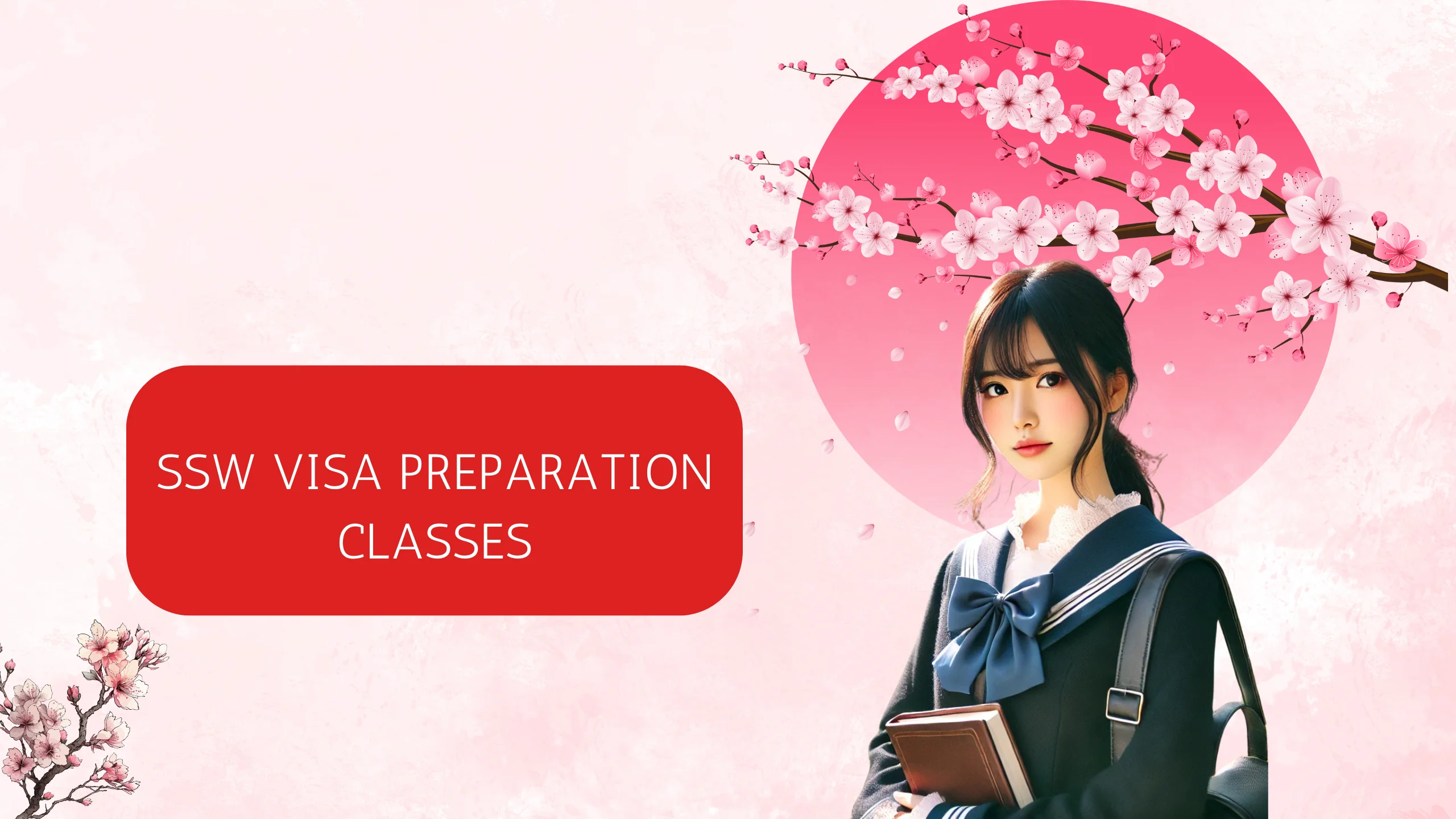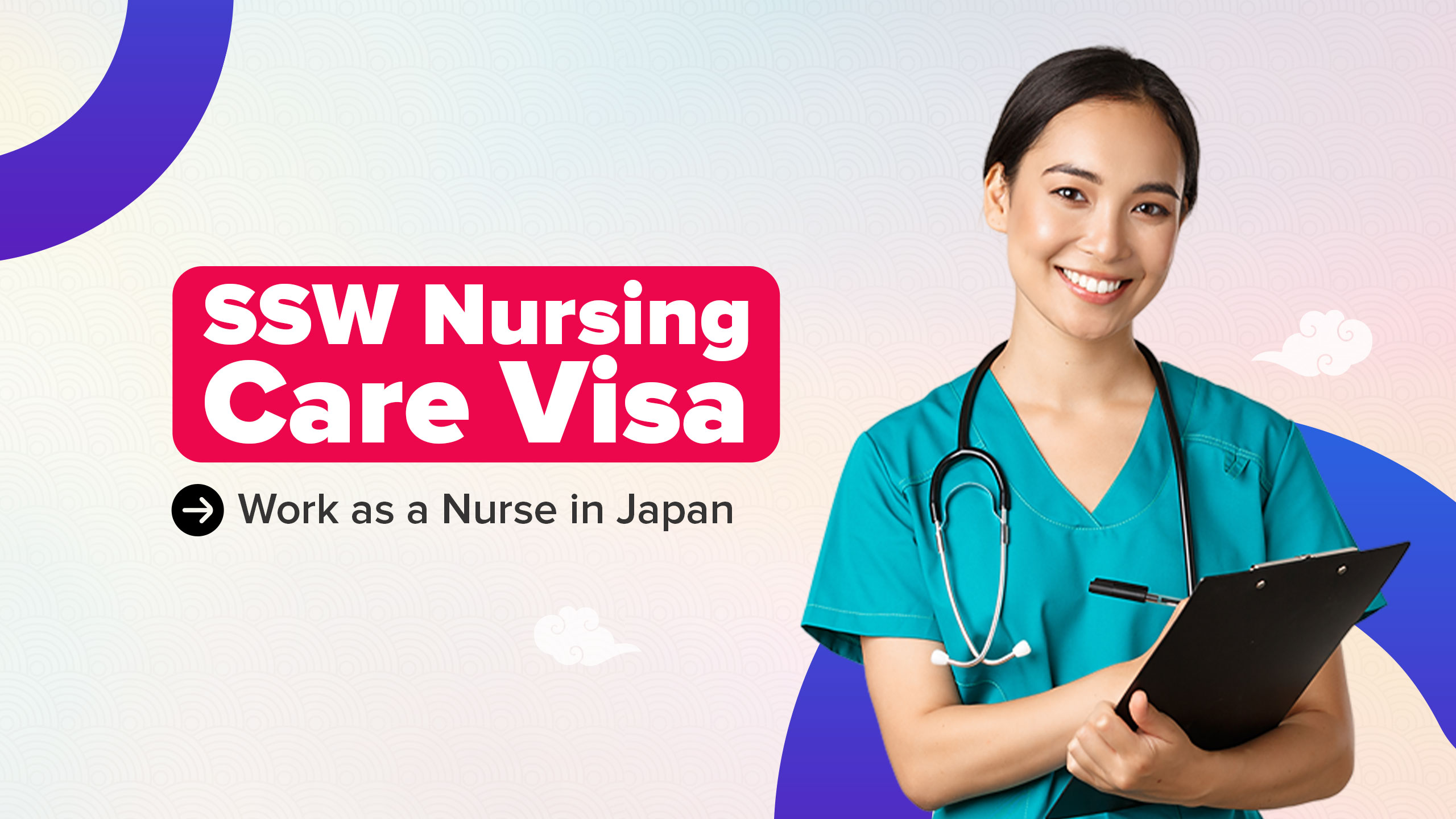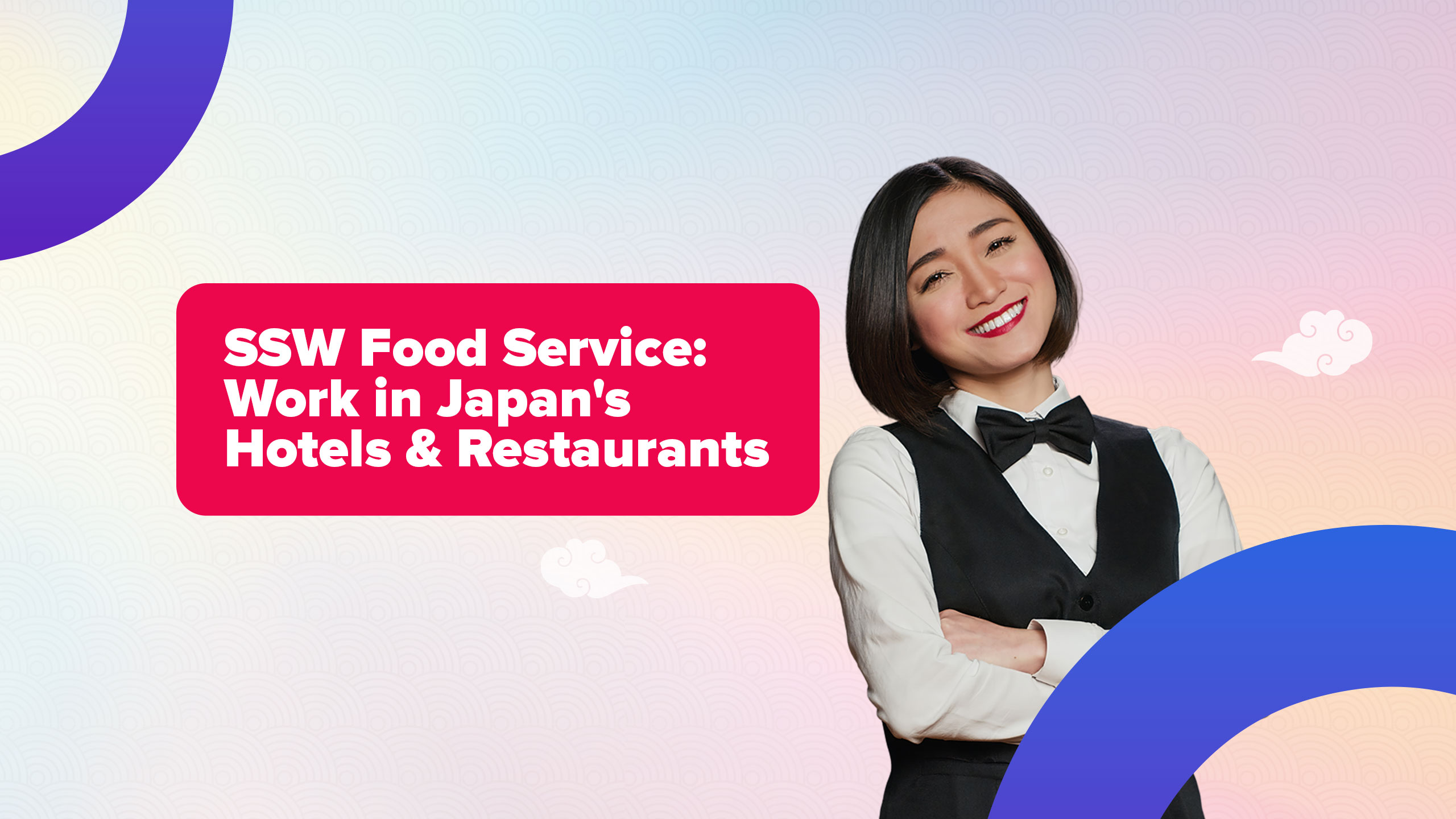
Are you dreaming of building a career in Japan? The Specified Skilled Worker (SSW) visa program opens doors to exciting opportunities in the Japanese job market. This comprehensive guide walks you through everything you need to know about SSW visa preparation, requirements, and the path to success.
Table of Contents
- Understanding the SSW Visa Program
- Types of SSW Visas
- Essential Requirements
- Language Proficiency Tests
- Industry-Specific Skills Tests
- Step-by-Step Preparation Guide
- Choosing the Right Training Center
- Cost Considerations
- Tips for Success
- Common Challenges and Solutions
- Future Prospects
- Resources and Support
- Frequently Asked Questions
- Conclusion
Understanding the SSW Visa Program
The Specified Skilled Worker visa is a specialized work permit introduced by the Japanese government to address labor shortages in key industries. This visa category allows qualified foreign workers to work in Japan across various sectors while providing them with competitive benefits and career growth opportunities.
Two Types of SSW Visas:
- SSW Type 1:
- Valid for up to 5 years
- Requires basic Japanese language skills
- Available across 14 designated industries
- No option to bring family members
- SSW Type 2:
- Allows indefinite renewal
- Requires higher skill level
- Limited to Construction and Shipbuilding industries
- Permits bringing family members
Essential Requirements for SSW Visa
Language Proficiency Tests
- Japanese Language Proficiency Test (JLPT)
- Minimum N4 level required
- Tests reading, listening, and language knowledge
- Held twice a year worldwide
- Japan Foundation Test (JFT-Basic)
- Industry-specific language assessment
- Tests practical Japanese communication skills
- More frequently available than JLPT
Industry-Specific Skills Tests
Each industry has its unique skills assessment:
- Building Cleaning Management
- Machine Parts & Tooling Industries
- Industrial Machinery Industry
- Electric, Electronics Information
- Construction Industry
- Shipbuilding/Ship Machinery Industry
- Automobile Repair and Maintenance
- Aviation Industry
- Accommodation Industry
- Agriculture
- Fishery & Aquaculture
- Food and Beverages Manufacturing Industry
- Food Service Industry
- Nursing Care
Step-by-Step Preparation Guide
1. Initial Assessment (2-3 months)
- Evaluate your current Japanese language level
- Choose your target industry
- Research job market demands
- Set realistic timeline goals
2. Language Preparation (6-12 months)
- Enroll in intensive Japanese classes
- Focus on practical communication
- Practice with native speakers
- Use online resources and apps
- Take mock tests regularly
3. Skills Training (3-6 months)
- Complete industry-specific courses
- Gain practical experience
- Study Japanese business culture
- Learn industry terminology
4. Documentation (1-2 months)
Required documents include:
- Valid passport
- Educational certificates
- Language test scores
- Skills test certificates
- Health certificate
- Police clearance
- Resume in Japanese format
Choosing the Right Training Center
Key Factors to Consider:
- Accreditation Status
- Government recognition
- Industry partnerships
- Success rate
- Course Structure
- Comprehensive curriculum
- Practical training
- Mock tests
- Industry connections
- Faculty Expertise
- Native Japanese instructors
- Industry experts
- Career counselors
Cost Considerations for SSW Visa Preparation
Training Expenses
- Language course fees: $1,000-2,000
- Skills training: $500-1,500
- Study materials: $200-400
- Mock tests: $100-200
Examination Fees
- JLPT: $50-60
- JFT-Basic: $70-80
- Skills test: $200-300
Tips for Success
- Study Strategies
- Create a daily study routine
- Use spaced repetition
- Practice with audio-visual materials
- Join study groups
- Test Preparation
- Take timed practice tests
- Focus on weak areas
- Learn test-taking strategies
- Manage time effectively
- Cultural Preparation
- Study Japanese work culture
- Learn basic etiquette
- Understand company hierarchy
- Practice proper communication
Common Challenges and Solutions
- Language Barriers
- Solution: Immersive learning environments
- Regular practice with native speakers
- Using language exchange apps
- Skills Gap
- Solution: Hands-on training
- Online courses
- Industry workshops
- Documentation Issues
- Solution: Early preparation
- Professional translation services
- Regular document updates
Future Prospects
The SSW visa program continues to evolve, offering more opportunities across industries. Successful visa holders can:
- Gain valuable international experience
- Build a career in Japan
- Develop professional networks
- Progress to higher positions
- Consider permanent residency options
Resources and Support
Online Learning Platforms
- Japanese language learning websites
- Industry-specific training portals
- Practice test platforms
- Cultural orientation resources
Support Networks
- SSW visa forums
- Professional associations
- Alumni networks
- Cultural exchange groups
Start your journey to working in Japan today with proper preparation and dedication to achieving your SSW visa goals. Remember, thorough preparation and understanding of requirements are key to success in this endeavor.
Conclusion
The SSW visa program represents a significant opportunity for international workers seeking to build a career in Japan. Success in obtaining and maintaining an SSW visa requires careful preparation, dedication to language learning, and commitment to developing industry-specific skills.
Key takeaways for successful SSW visa preparation:
- Start early with language preparation
- Choose your industry sector carefully based on your interests and skills
- Invest in quality training programs
- Maintain focus on both language and technical skills
- Stay informed about program requirements and updates
- Build a strong support network
Remember that while the path to obtaining an SSW visa may seem challenging, proper preparation and dedication can lead to rewarding career opportunities in Japan. The investment in time and resources for comprehensive preparation will pay off in terms of increased chances of success and better adaptation to working life in Japan.
Whether you're just starting your journey or already in the preparation phase, stay committed to your goals and utilize the resources and support systems available to you. Your success in the SSW visa program could be the first step toward a fulfilling international career in Japan.
Frequently Asked Questions - SSW Visa Preparation Classes
Q: What is the minimum age requirement for an SSW visa?
A: Applicants must be at least 18 years old to apply for an SSW visa.
Q: How long does the entire SSW visa process take?
A: The complete process typically takes 8-14 months, including language preparation, skills training, and visa processing.
Q: Can I change employers while on an SSW visa?
A: Yes, you can change employers within the same industry sector without losing your visa status.
Q: Do I need to know Japanese before applying?
A: Yes, you must demonstrate Japanese language proficiency through either JLPT N4 or JFT-Basic.
Q: Which is better - JLPT or JFT-Basic?
A: Both are accepted. JFT-Basic is more focused on practical workplace Japanese and has more frequent test dates.
Q: Can I apply for multiple industry sectors?
A: Yes, you can prepare for multiple sectors, but you'll need to pass the relevant skills test for each.
Q: Is prior work experience required?
A: Work experience is not mandatory but can be advantageous for both visa approval and job placement.
Q: What is the minimum salary on an SSW visa?
A: SSW visa holders must receive the same salary as Japanese nationals in similar positions, ensuring fair compensation.
Q: Are there any financial requirements for visa application?
A: You need to demonstrate sufficient funds to support your initial stay in Japan, typically around 200,000 yen.
Q: Can I study while on an SSW visa?
A: Yes, you can pursue additional studies during your free time as long as it doesn't interfere with your work.
Q: What happens if I lose my job?
A: You have a grace period of up to 3 months to find new employment within your designated sector.




